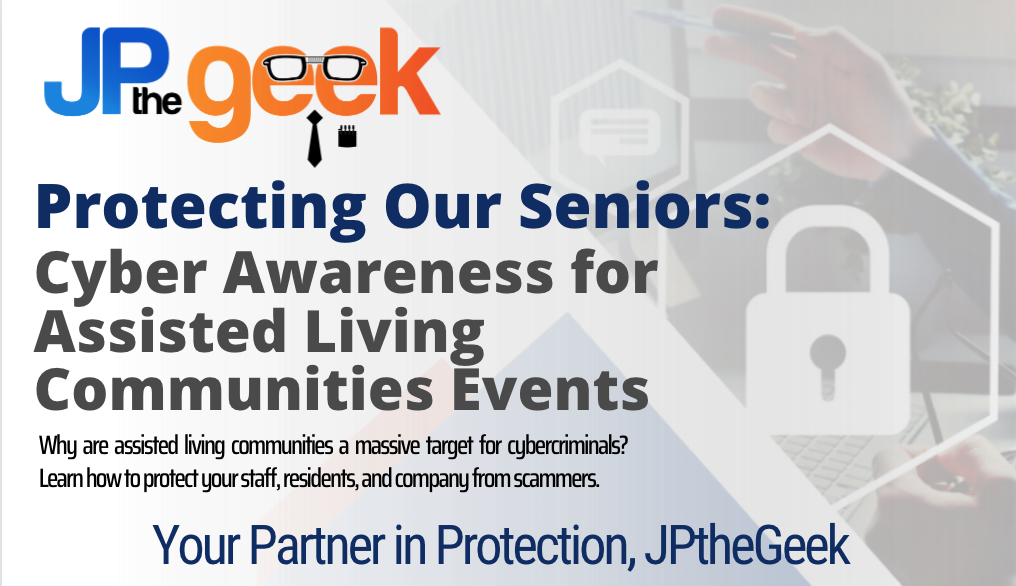Cyber Awareness: Protecting Assisted Living Communities from Online Scams
In recent years, the Internet has become an integral part of our daily lives, offering countless opportunities for communication, entertainment, and...

Cyber Awareness Tips for Senior Living Communities
In today's increasingly digital world, staying safe online is more important than ever, especially for senior citizens residing in assisted living communities. With cyber threats evolving constantly, it's crucial to equip ourselves with the knowledge and tools necessary to protect our personal information and privacy. Here are four essential tips to enhance cyber awareness and safety in senior living communities:
1. Think Before You Click:
Cybercriminals often use phishing emails and malicious links to trick unsuspecting individuals into revealing sensitive information or installing malware on their devices. As a senior living community member, it's essential to exercise caution before clicking on any links or opening attachments, especially if they come from unfamiliar or unexpected sources. Remember, when in doubt, it's best to verify the legitimacy of the sender before taking any action.
2. Be Aware of What You Share:
In today's social media-driven world, it's easy to overshare personal information without considering the potential consequences. Seniors in assisted living communities should be mindful of the information they share online, including their full names, addresses, birthdates, and financial details. Cybercriminals can use this information for identity theft, fraud, or other malicious activities. By practicing discretion and limiting the amount of personal information shared online, seniors can reduce their risk of becoming victims of cybercrime.
3. Find an Effective Security Solution:
Investing in robust cybersecurity measures is essential for safeguarding against online threats. Senior living communities should consider implementing effective security solutions such as antivirus software, firewalls, and virtual private networks (VPNs) to protect residents' devices and networks from malware, viruses, and other cyberattacks. Additionally, regularly updating software and operating systems can help patch security vulnerabilities and ensure maximum protection against emerging threats.
4. Shop Online Safely:
Online shopping offers convenience and accessibility, but it also presents risks, particularly for seniors who may be less familiar with digital transactions. When shopping online, always ensure that the website is secure by looking for HTTPS in the URL and a padlock icon in the address bar. Avoid making purchases over public Wi-Fi networks, as they may not be secure. Furthermore, use strong, unique passwords for online accounts and consider enabling multi-factor authentication for an extra layer of security.
In conclusion, by following these four tips—thinking before clicking, being mindful of what you share, investing in effective security solutions, and shopping online safely—seniors in assisted living communities can significantly enhance their cyber awareness and protect themselves from online threats. Together, let's create a safer and more secure digital environment for all community members.
Stay cyber-aware, stay safe!

In recent years, the Internet has become an integral part of our daily lives, offering countless opportunities for communication, entertainment, and...

Safeguarding Seniors: Cyber Awareness Events with JPtheGeek and Baxter YMCA

In the realm of assisted living centers and nursing homes, the abundance of data, from patient medical records to client payment information, makes...